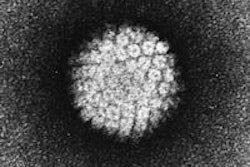Only Virginia and the District of Columbia currently require vaccinations for the human papillomavirus (HPV), according to a new study in the Journal of the American Medical Association (July 14, 2015).
Studies show that the incidence of certain types of head and neck squamous cell carcinomas are increasing, especially among young adults, partly due to the increasing prevalence of HPV.
The U.S. Centers for Disease Control and Prevention (CDC) recommends that all girls age 11 or 12 get the three doses, and females between the ages of 13 through 26 years should get the HPV vaccine if they have not received any or all doses when they were younger. The CDC recommends the HPV vaccine for all boys age 11 or 12 years and males ages 13 through 21 years who did not get any or all of the three recommended doses when they were younger.
An analysis of state vaccination requirements for adolescents finds that the HPV vaccine is now required in many fewer states than another vaccine associated with sexual transmission (hepatitis B) and another primarily recommended for adolescents (meningococcal conjugate), the study authors found.
Eight years after HPV vaccines were first recommended in the U.S., vaccination coverage is substantially below the Healthy People 2020 target of 80%. CDC data show that 38% of adolescent girls and 14% of adolescent boys had completed the three-dose series in 2013. Recent efforts to address these deficits emphasize that HPV vaccines should not be viewed or treated differently than other routinely recommended vaccines, the authors noted.
Vaccination requirements were more common for hepatitis B vaccine (47 states and District of Columbia), varicella vaccine (50 states and District of Columbia), and meningococcal conjugate vaccine (29 states and District of Columbia) than for HPV vaccine (two states and District of Columbia). HPV vaccination requirements in Virginia and District of Columbia include broad, vaccine-specific exemption procedures. Rhode Island will require HPV vaccines beginning in August 2015.
"Why HPV vaccine requirements have not been more widely implemented is unclear, but may reflect reluctance among states to revisit the contentious political climate surrounding requirement proposals in 2006-2007," the authors wrote. "The novelty of the three-dose HPV vaccine series in the adolescent schedule may present additional challenges. The recent approval and recommendation of a 9-valent HPV vaccine offers a new opportunity to consider all strategies shown to promote high vaccination rates, including school requirements."
The HPV vaccine (HPV4) could extend lives and save tens of millions of dollars in treatment-related costs, according to a study published in the journal Cancer (April 13, 2015). By 2020, it is projected that HPV-related oropharyngeal cancer will become the most common HPV-related cancer in the U.S., and cost estimates of noncervical HPV-related diseases range from $160 million to $5 billion annually.



















